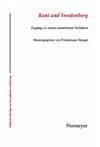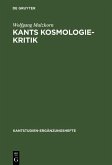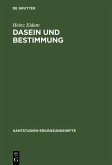Beckett's novel Molloy and the question how this work evokes a particular kind of feeling associated with its exhibition of meaninglessness, namely the feeling of the sublime, is the point of departure for this study.
Kant's theory of the sublime is interpreted within the framework of his aesthetic and moral theories, suggesting a way to understand the claim to universal validity for aesthetic judgements. Kant claims that the judgement of the sublime serves morality but he fails to provide this link, so a theory of how this aesthetic judgement can contribute to the cultivation of moral character is developed. It is argued that Kant held that art, including narrative art like the novel, can be sublime. Kant's theory of the sublime is shown to be relevant for modern works of art, and the application of this Kantian framework throws new light on the discussion of the moral aspects of Beckett's literary work. According to this account, Molloy is a sublime work of art, and despite its amoral content can serve the reader's moral cultivation.
Dieser Download kann aus rechtlichen Gründen nur mit Rechnungsadresse in A, B, BG, CY, CZ, D, DK, EW, E, FIN, F, GR, HR, H, IRL, I, LT, L, LR, M, NL, PL, P, R, S, SLO, SK ausgeliefert werden.









